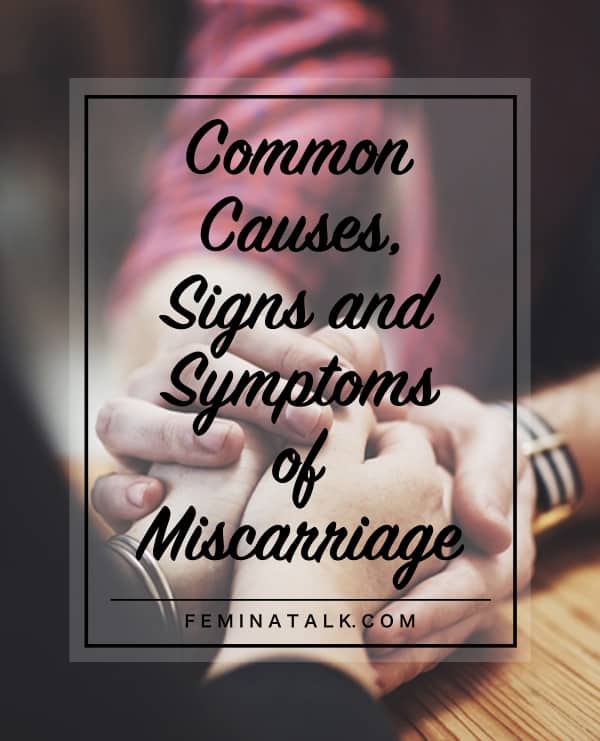What is a miscarriage?

Miscarriage rates are increasing by the day and it has become a worrisome reason for women across the world. Miscarriage is a kind of abortion that happens on its own. And this generally happens within the first 20 weeks of conception. The growing Miscarriage rates have resulted in a situation where a considerable percentage of pregnancy loss has come to take place because of miscarriage. Surprisingly, a lot of women miscarry even before they come to know they are pregnant; causes for the same definitely vary.
Common Causes, Signs And Symptoms Of Miscarriage

Causes of Miscarriage
A lot of women end up blaming themselves for having miscarried. But in reality, miscarriage causes not because of the fault of the woman. And there is also nothing that a woman can do for its prevention. The most common problem has been proved to be a chance genetic abnormality in the embryo. And the alarming miscarriage rates are not a direct consequence of exercise (mild), a cup of coffee or something as simple as an evening walk, and therefore these things should not be blamed for this type of pregnancy loss. Below, you find some of the most common causes that result in increased chances of miscarriage. Check out-

- The process of egg fertilization in humans is complex; any kind of glitch in the process can result in abnormality of the genes. Such abnormalities hinder the embryo’s growth, which in turn, ups the chances of miscarriage.
- Unbalanced hormones are one of the biggest reasons why miscarriages happen. About 15 percent of all pregnancy losses happen due to this reason. For instance, when progesterone levels go haywire, the egg fails to attach to the uterine lining.
- Problems in the uterus also grow chances of miscarriage. While fibroids in the uterus can cause a serious problem in this regard, some women are born with uterine defects like septum in the uterus. A lot of women also develop scar tissue bands in the uterus. Miscarriage treatment for problems like these are readily available, and always clear the issue.
- Out of all the causes of miscarriage, chronic illness is something a lot of people ignore. Some of the illnesses that grow the chances of miscarriage include diabetes, liver problems, kidney and heart disorders, and certain autoimmune diseases like lupus. For any women suffering from any chronic illness of this sort, visiting an obstetrician would be the best bet. This is critically important if the concerned wants a hassle-free miscarriage treatment.
- Irrespective of how healthy you feel, if you have got a high fever, you might get a miscarriage. This generally happens during early pregnancy, especially when the fever is too high.
Signs and Symptoms of Miscarriage:
Heads-up for pregnant women so that miscarriage treatment can be opted for on time-
Miscarriage rates are growing, and that is why it’s important that you make yourself familiar with the below important Signs and Symptoms of Miscarriage-

Although a lot of women consider ‘spotting’ common during early pregnancy, you shouldn’t take it too casually. Spotting is not one of those sure-shot Signs and Symptoms of Miscarriage gynecologists talk about, but it sure is something alarming. Spotting is indicative of the fact that not everything inside your womb is normal.
Although some women don’t get the indication of any kind, here are some of the most common Signs and Symptoms of Miscarriage to watch out for-
- Cramps of mild to severe intensity.
- Pain in the abdomen or the back.
- Loss of pregnancy symptoms such as vomiting and nausea.
- Discharge of mucus that is whitish-pink in color.
- Passing of clotted discharge or tissue.
Miscarriage treatment-
If you feel that the miscarriage is complete, you should pay a visit to your doctor’s clinic for a thorough check-up. Your doctor might ask you to get an ultrasound done so as to make sure the uterus is clean and empty.

Even in case you are not sure, you will need to go to a hospital. In the medical facility, you will, first, be attended to by a triage nurse who will do an examination on your body to decide on how urgently you need the treatment. Care will be offered according to that.
If you are asked to wait and you feel your symptoms are worsening, you will have to report it to the staff immediately.


